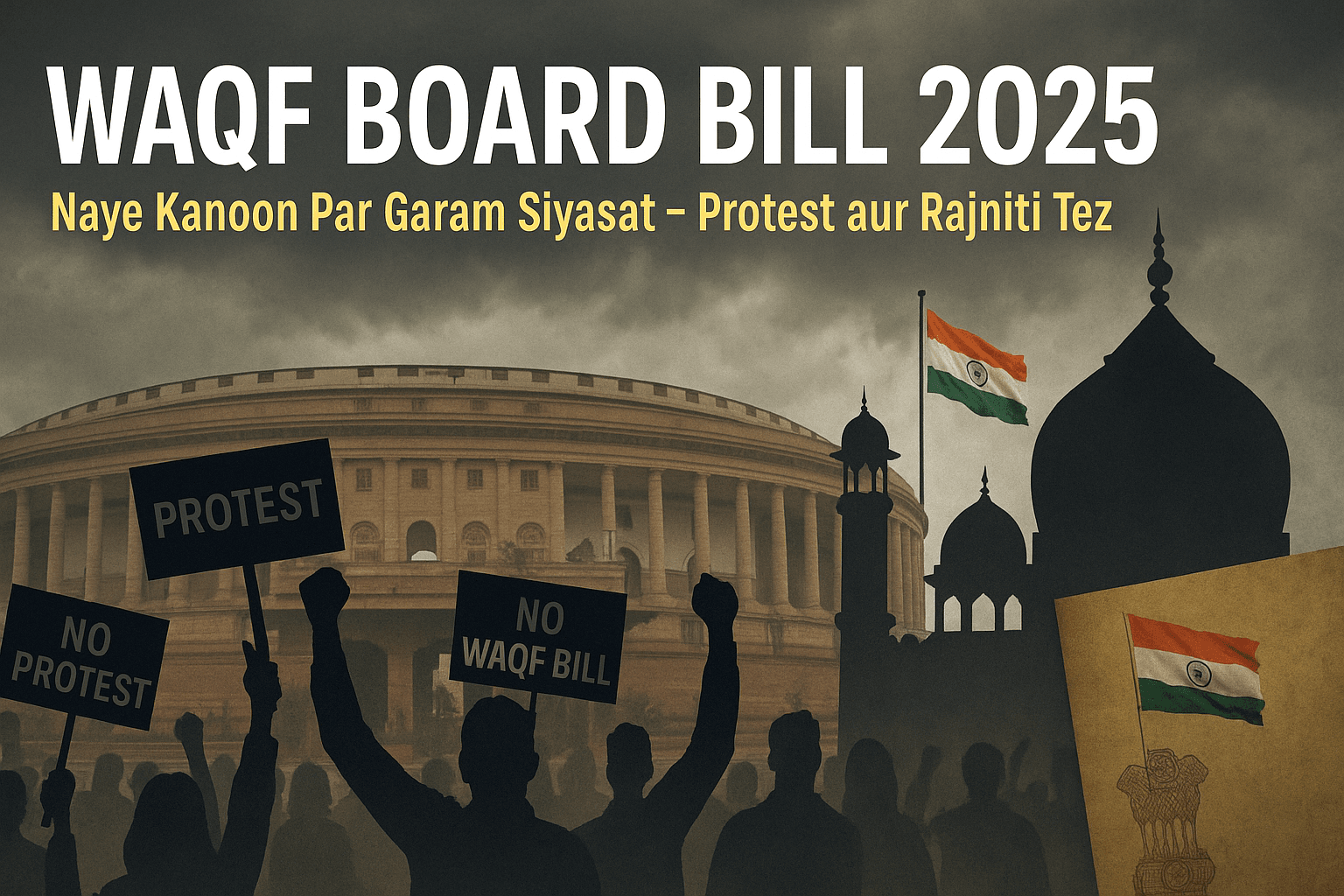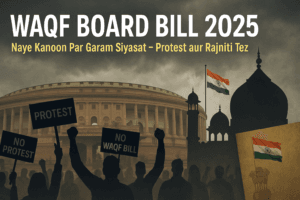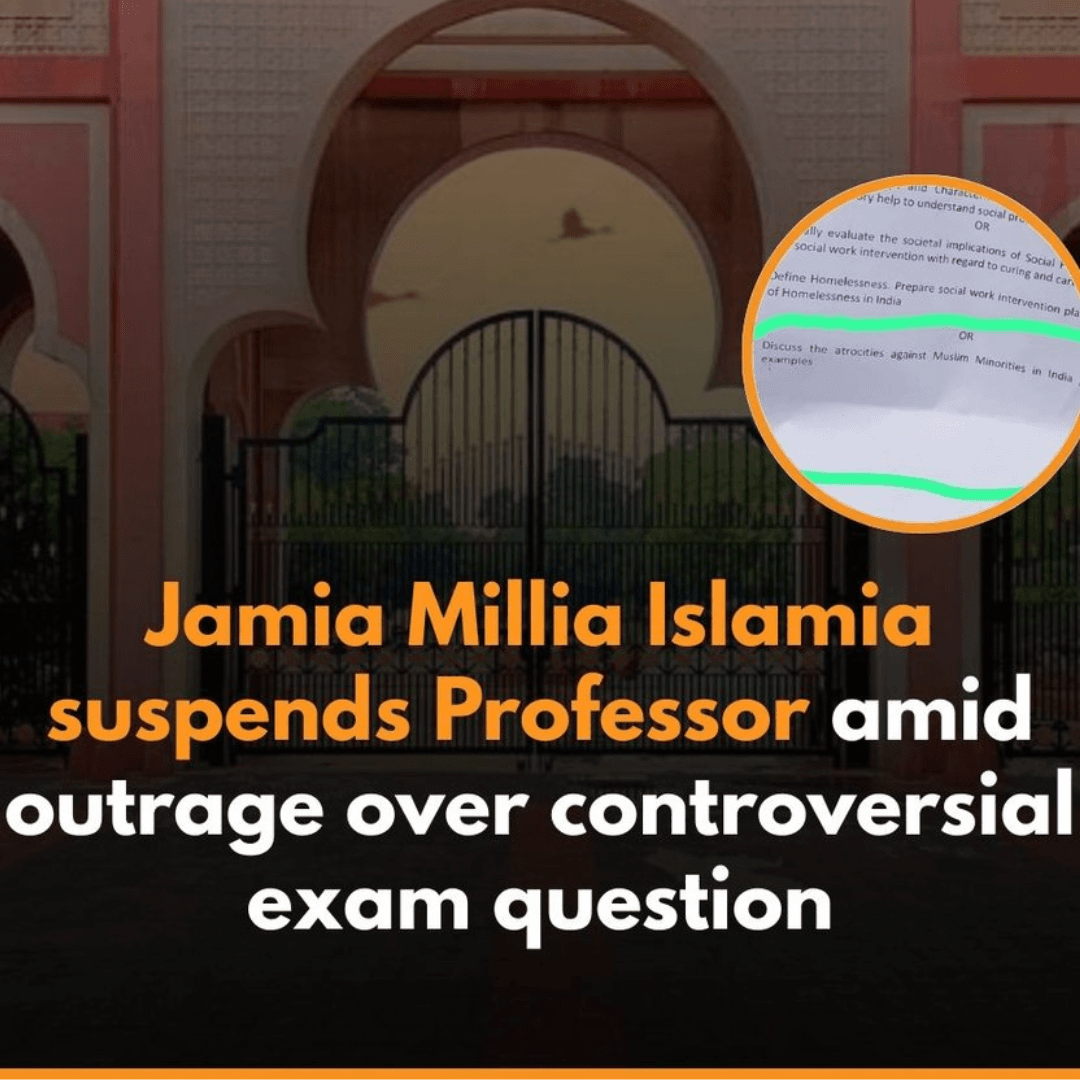
WAQF BOARD BILL
“Socho agar kisi din aapke religious property ka control aapke hi haath se nikal jaaye… bina pooche, bina samjhaaye…”
yahi ho raha hai.
Waqf Amendment Bill 2025 Parliament ne pass kar diya hai, aur ab poora game change hone wala hai.
Ab se Waqf Board mein non-Muslim members bhi honge. Sarkar keh rahi hai ki transparency badhegi. Lekin dusri side kya keh rahi hai?
Opposition parties aur Muslim organizations keh rahe hain ki
“Yeh sirf ek excuse hai… asli maksad hai control lena.”
Aur sabse bada bomb?… Section 40 hata diya gaya hai.
Iska matlab — ab Waqf Board kisi bhi property ko waqf declare nahi kar sakta. Jo authority thi, woh gayi.
Kahi log keh rahe hain “Yeh toh sirf shuruaat hai. Pehle authority lo, fir property lo.”
Sarkar bolti hai – “Corruption rokenge.”
Lekin public pooch rahi hai – “Community ke rights ka kya?”
ye sirf law ka issue nahi hai, yeh trust ka mamla hai.
Jin logon ne centuries pehle kuch donate kiya tha “Allah ke naam pe”, unki niyat ka kya hoga jab sarkar hi keh de – “Yeh ab hamare under aata hai.”
“Yeh bill sirf paper pe nahi, zameen pe asar karega.
Overview
The Waqf (Amendment) Act, 2025, passed by the Indian Parliament in early April 2025, amends the Waqf Act of 1995. It aims to enhance transparency and accountability in the management of waqf properties. The Act introduces significant changes, including the inclusion of non-Muslim members in waqf boards and increased government oversight. https://www.oneindia.com/+6Wikipedia+6The Economic Times+6Drishti IAS+4AP News+4Wikipedia+4Reuters+2AP News+2AP News+2
🔑 Key Provisions
Renaming the Act: The original Waqf Act has been renamed as the Unified Waqf Management, Empowerment, Efficiency and Development Act, 1995 (UWMEED Act). The Financial Express+5Wikipedia+5NewsClick+5
Board Composition: The Act mandates the inclusion of at least two Muslim women in the Central Waqf Council and State Waqf Boards. It also requires representation from various Muslim sects, such as Shia, Sunni, Bohra, and Agakhani communities. Wikipedia+1Reuters+1
Property Declaration: Only individuals who have practiced Islam for at least five years and own the property can declare it as waqf. The provision for “waqf by user” has been removed. PRS Legislative Research+3Wikipedia+3Hindustan Times+3
Dispute Resolution: Decisions made by Waqf tribunals can now be appealed in the High Court within 90 days. Wikipedia
Survey and Registration: The responsibility for surveying waqf properties has been assigned to the District Collector or an appointed officer. A central portal and database will streamline the registration process. Wikipedia
⚖️ Controversies and Opposition
Political Opposition: Opposition parties, including the Indian National Congress, have criticized the Act, alleging it infringes upon the constitutional rights of Muslims and could lead to the seizure of historic religious properties lacking formal documentation. AP News+1AP News+1
Protests: The passage of the Act has sparked protests in various parts of India. In West Bengal’s Murshidabad and Tripura’s Unakoti, demonstrations turned violent, resulting in casualties and prompting the deployment of security forces. Wikipedia
Legal Challenges: The Communist Party of India (CPI) has filed a petition in the Supreme Court challenging the constitutional validity of the Act. Wikipedia
🌐 International Reactions
The Act has drawn international attention, with protests occurring in neighboring countries. In Bangladesh, demonstrators have called on the Organisation of Islamic Cooperation (OIC) to respond to what they perceive as a broader pattern of Muslim displacement in India









